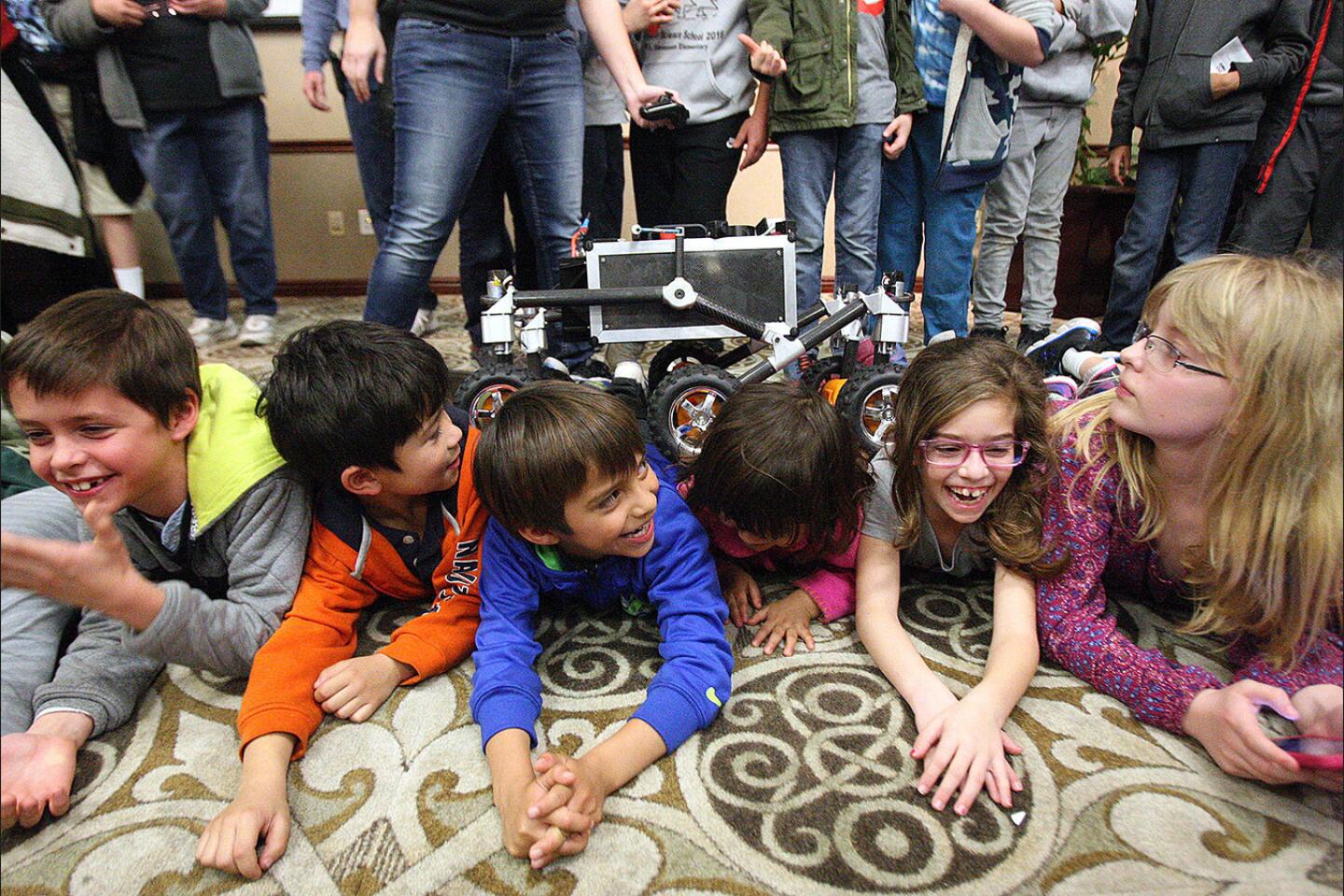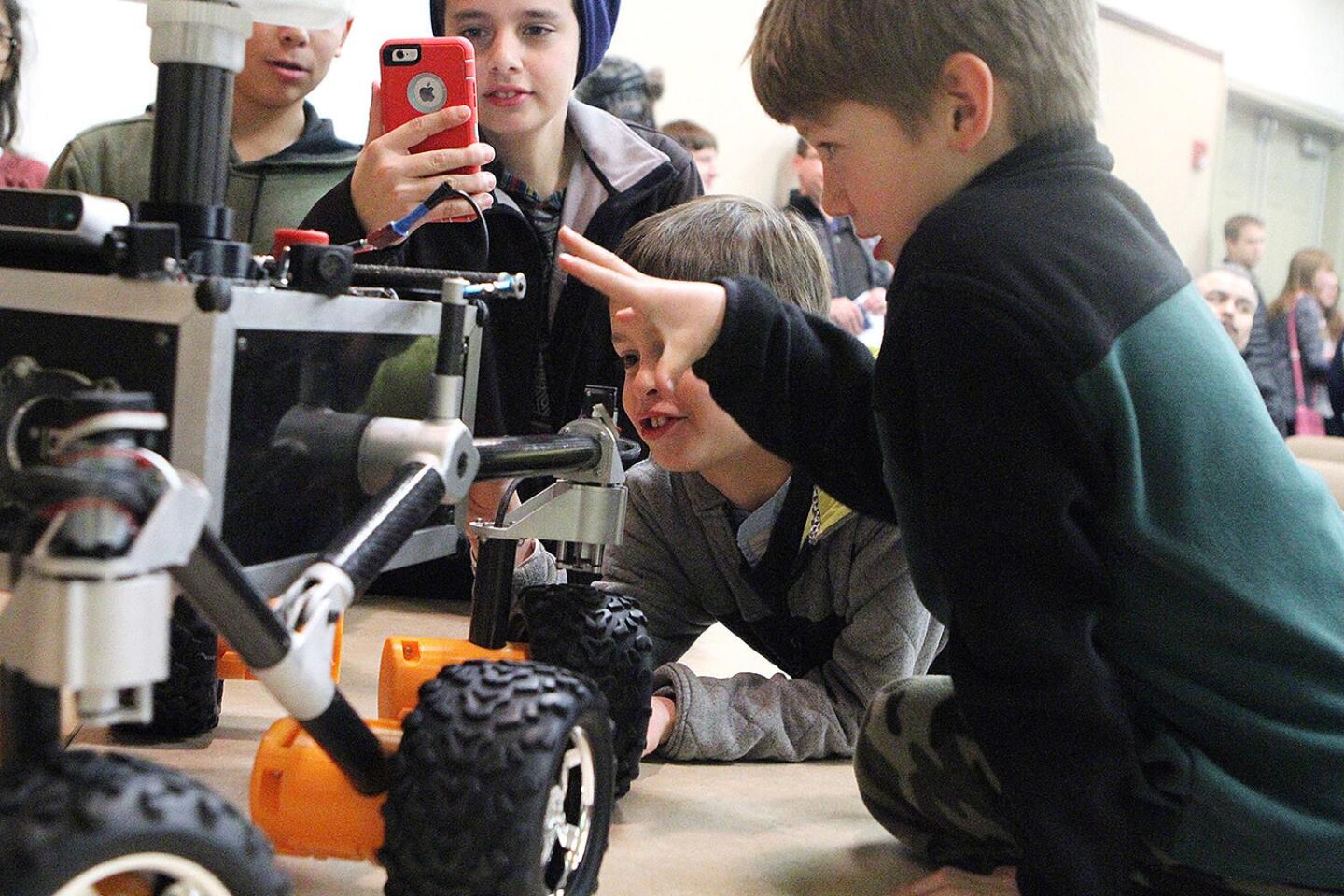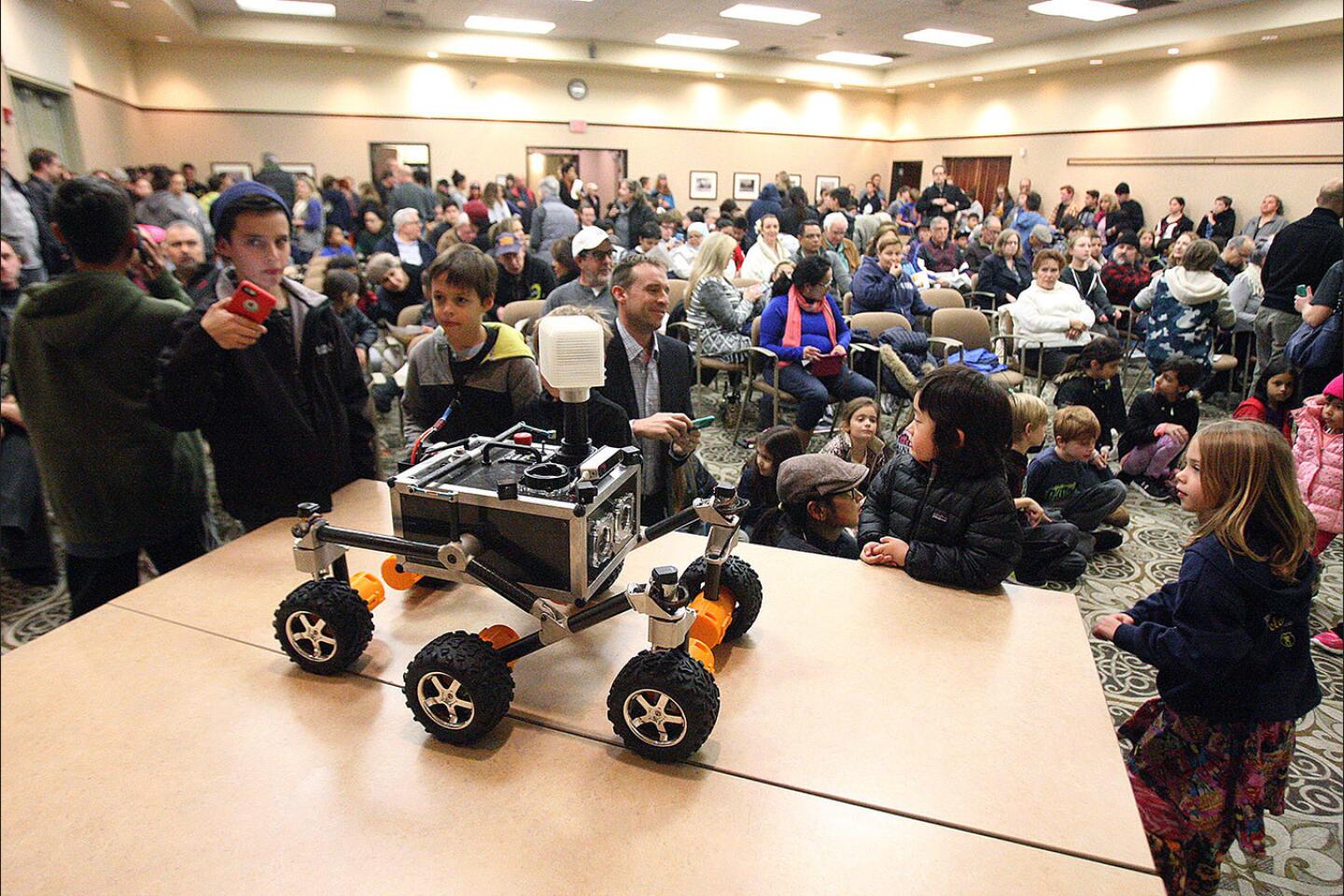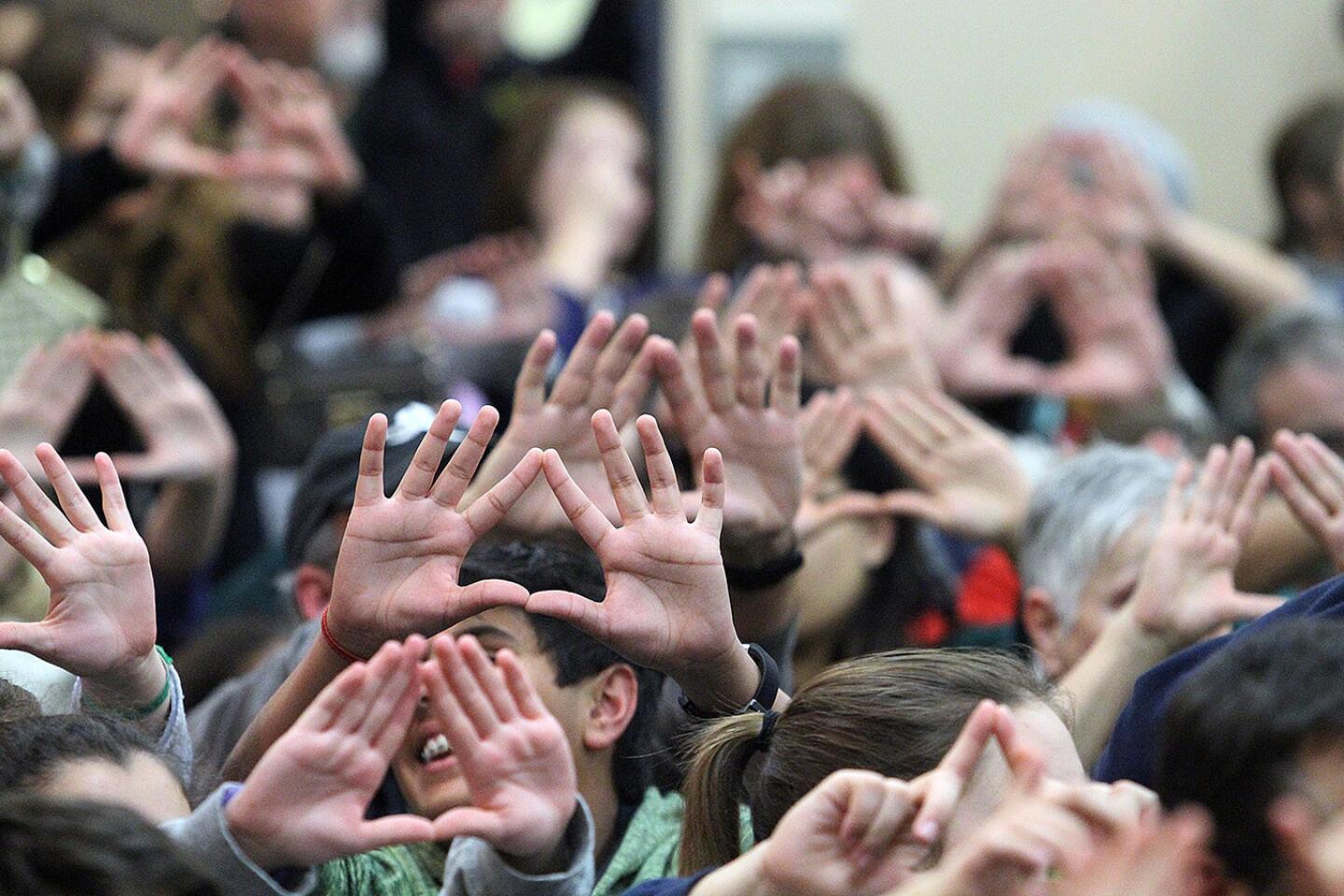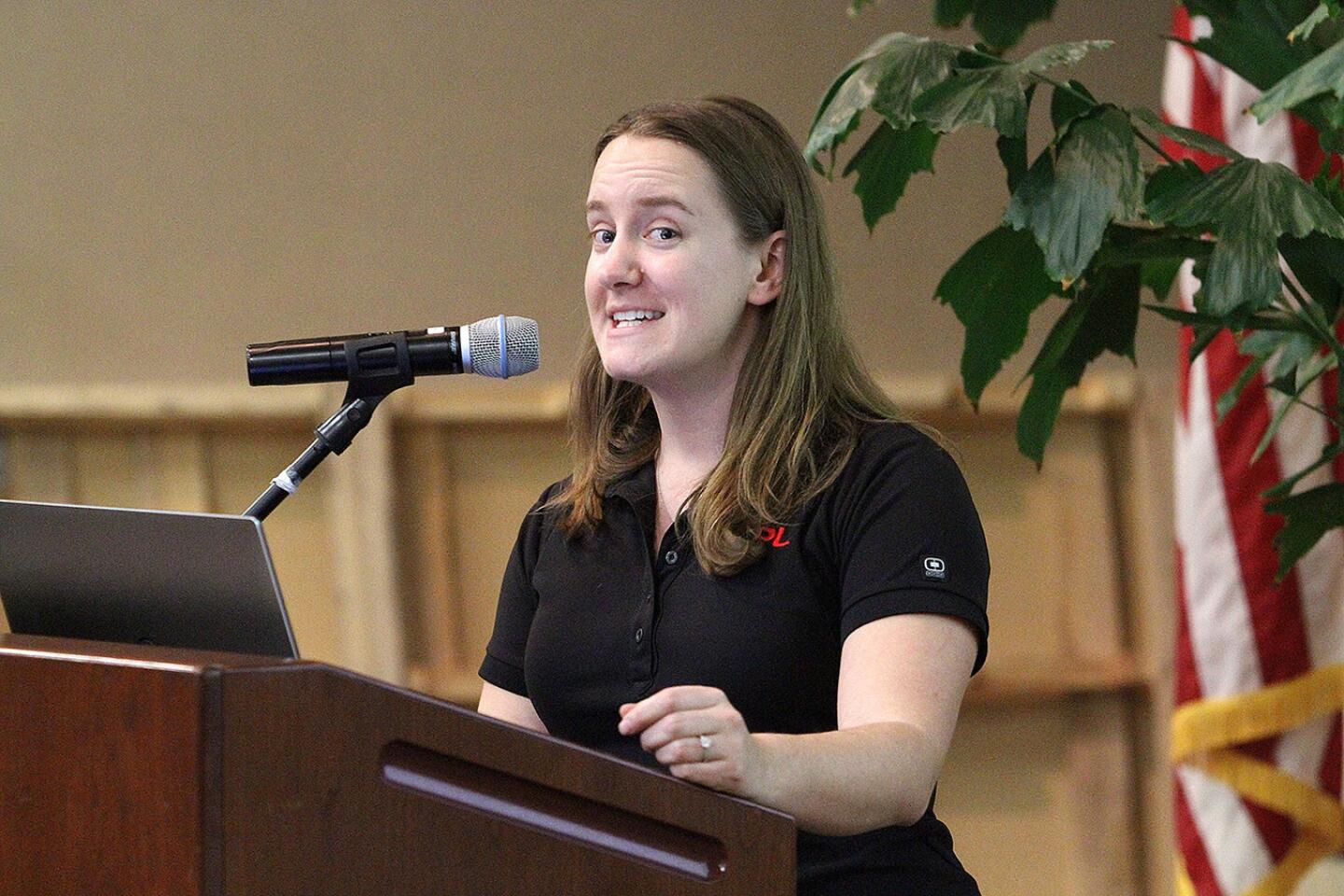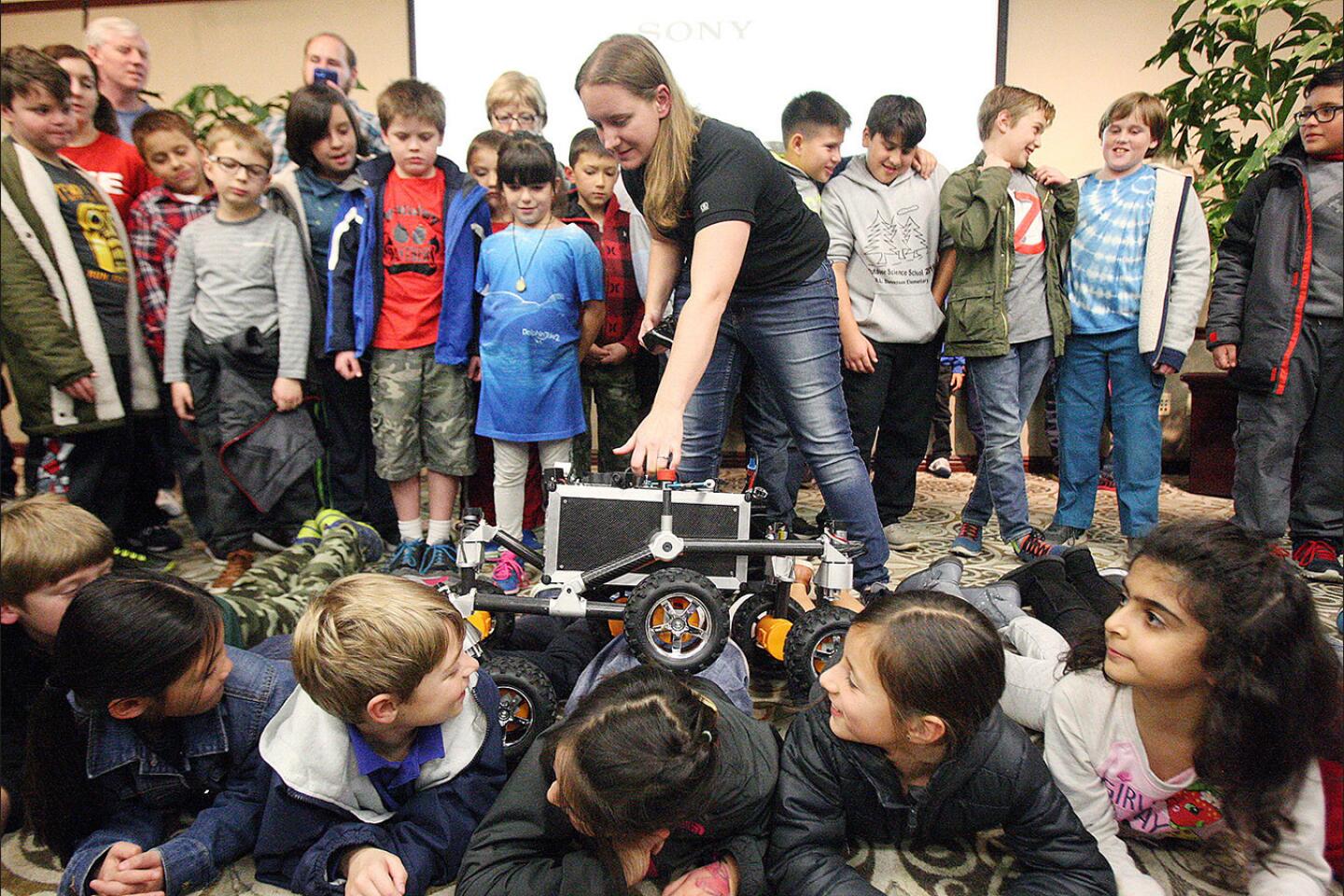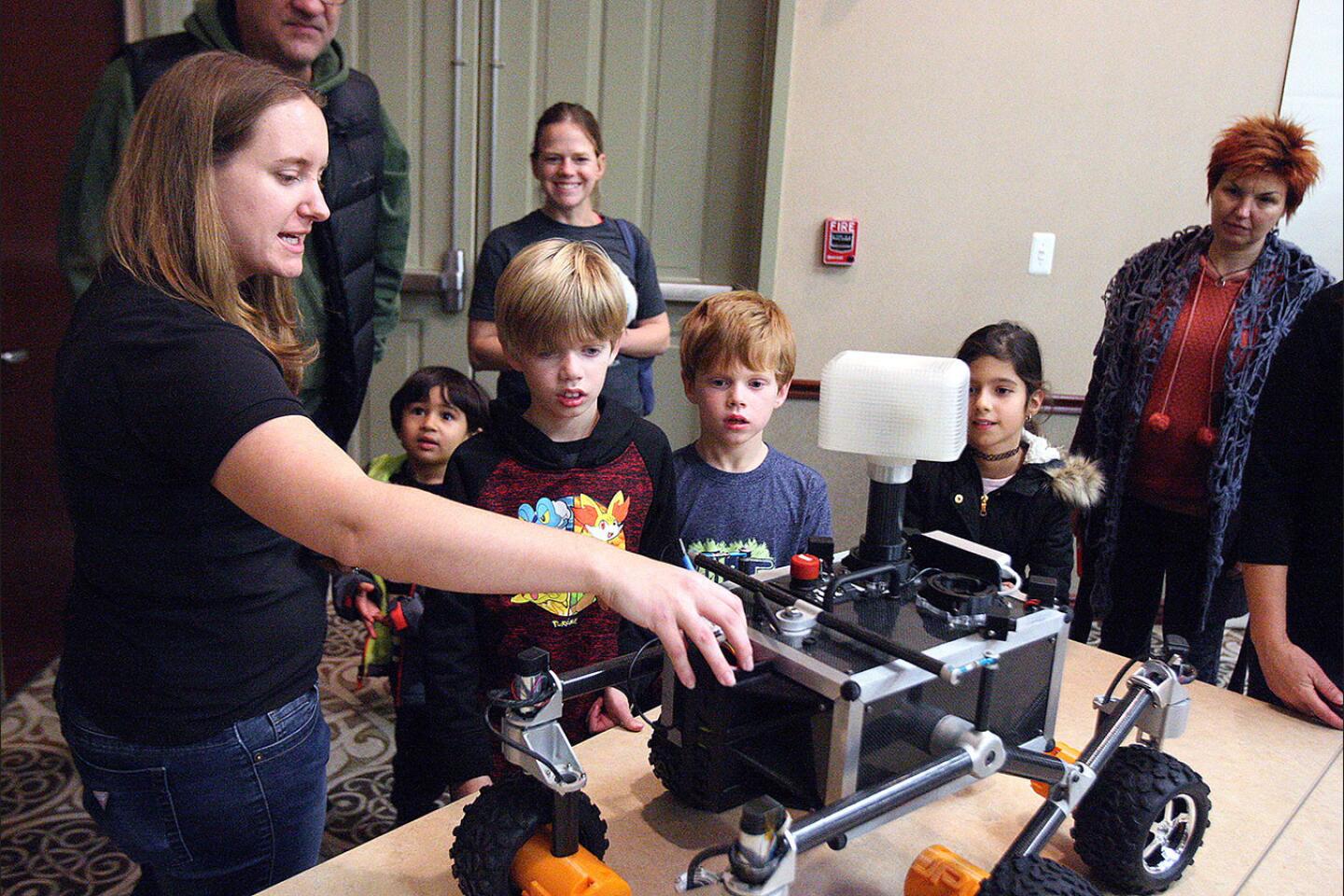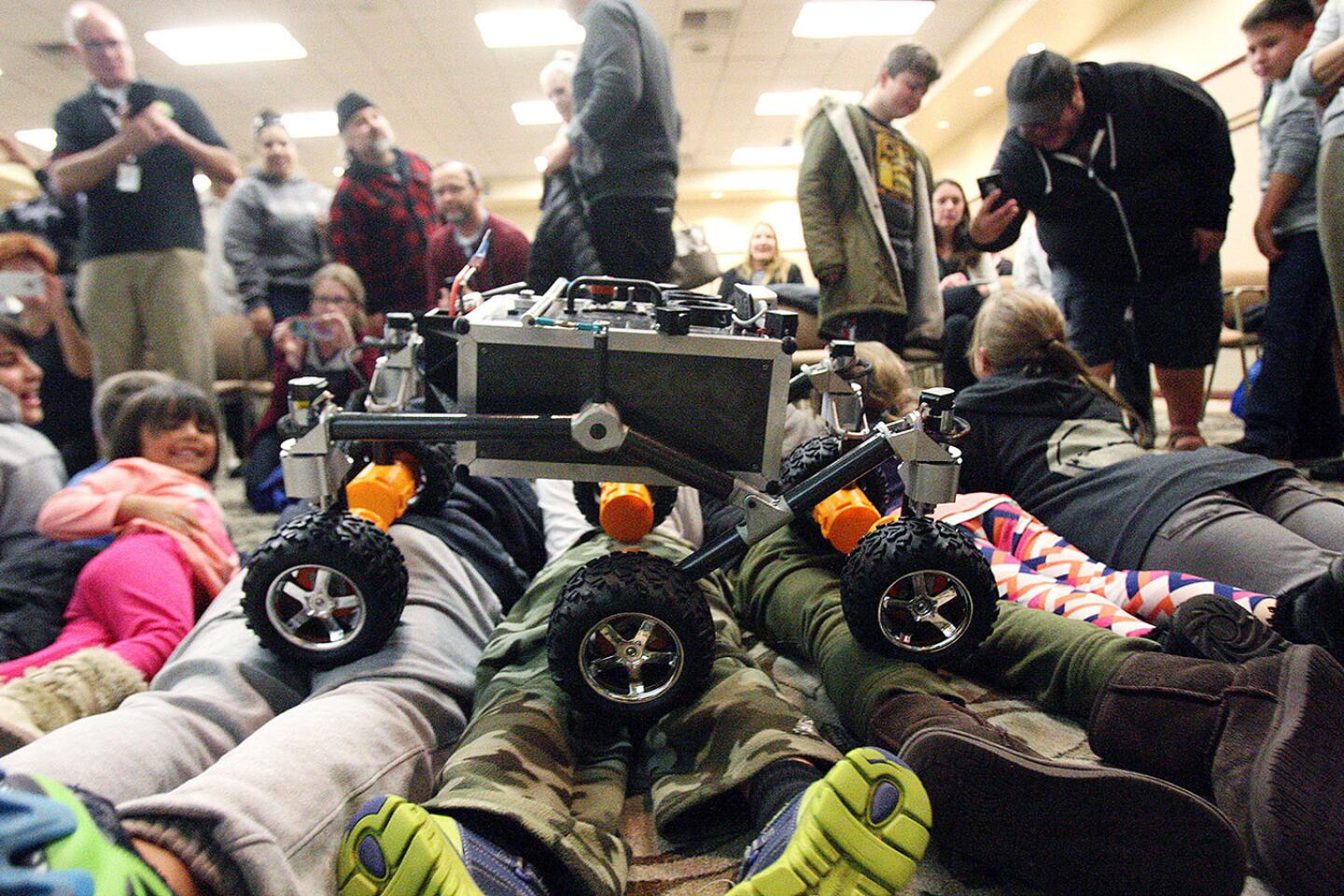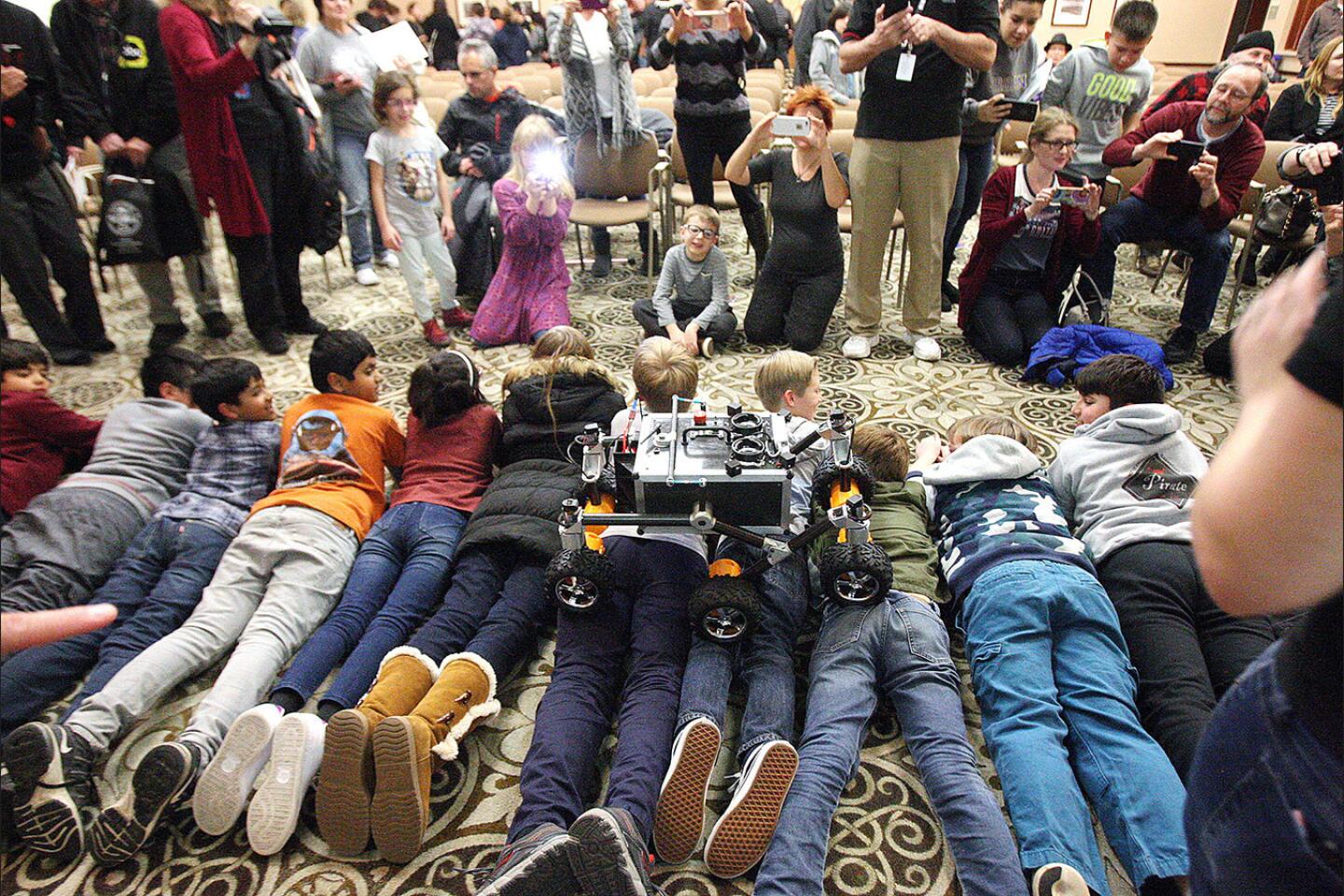Mechanical engineer shares how JPL scientists communicate with Curiosity rover
- Share via
About 360 people packed the community room to standing-room only at the Buena Vista Library in Burbank Tuesday evening to hear Megan Richardson, a mechanical engineer at NASA’s Jet Propulsion Laboratory, speak about her experience working on the Mars Curiosity rover.
Each day, the rover sends data to the La Cañada Flintridge lab where Richardson and others “take a look at all that data to make sure that it’s healthy and that it did everything we commanded it to do.”
The team then builds “an entire day’s worth of commands” for the rover to accomplish the following day, which could include driving to a new spot or brushing dust off of a rock to secure a clear image of it to send back to Earth.
Between the two planets, there can be anywhere from a four-minute to a 24-minute communication delay, she said.
Join the conversation on Facebook >>
“If we want to say, ‘Drive forward,’ and we send that to Mars, 24 minutes later, [the rover] will get the command, ‘Drive forward.’ And 24 minutes back to Earth, it will say, ‘OK, driving forward. What do you want me to do?’” Richardson said. “We say, ‘Stop! I only wanted you to drive for three minutes.’ And 24 minutes later, it will say, ‘Stop.’ Twenty-four minutes after that, it will say, ‘OK. I stopped, but I drove for 48 minutes.’”
Burbank Librarian Hubert Kozak invited Richardson to speak as part of the library’s effort to encourage students, including girls, to pursue careers in science and engineering.
“We are trying to make a point of letting students know that these kinds of careers are open to everyone, and that in particular, young women can think about pursuing their dreams and putting their talents to work in the sciences and in engineering,” Kozak said.
Nearly all of the event’s attendees were students, and Richardson encouraged them to play with robot kits, K’Nex building sets, and LEGO Mindstorms to build robots.
She also suggested they play with Arduino and Raspberry Pi products, allowing them to learn about electronic prototyping and programming, and encouraged parents to visit www.instructables.com to take on do-it-yourself tech projects at home.
Richardson herself grew up in Massachusetts working on cars.
“My dad was an auto-body guy and my uncle was a mechanic,” she said. “When it came time to figure out what I wanted to go to school for, I also liked math and science.”
She went on to study mechanical engineering at Northeastern University and UCLA.
Asked by a participant if she would want to travel to Mars, Richardson said she wasn’t sure.
“I think right now, it would be a one-way ticket, so I’m going to go with ‘no’ on the one-way ticket.”
But if she were guaranteed a return trip to Earth, she would visit Mars to work with scientists to study the geology of the planet to learn how Mars was formed and how it lost its atmosphere.
“That will help us preserve our planet,” she said.
--
Kelly Corrigan, [email protected]
Twitter: @kellymcorrigan
